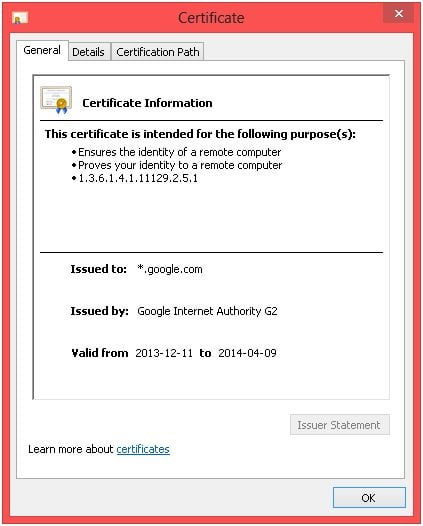Understanding SSL
What is SSL?
SSL stands for secure sockets layer and is a form of security for sites that handle sensitive information such as customer names, phone numbers, addresses, and credit card numbers. It creates a secure connection between a customer’s web browser and the server of the company they’re interacting with. SSL is essential for any site that sells goods or services as it ensures that all information handled stays private and secure.
Why SSL? Many customers ask “Why do I need SSL? What will it do for me?” This is an important question for anyone involved in the web to understand. SSL is the backbone of our secure Internet and it protects your sensitive information as it travels across the world. It keeps the Internet from being ruled by anarchists and criminals and provides many direct benefits to you and your customers.
What Are the Benefits of SSL?
Using SSL security offers many benefits to both businesses and consumers. Other benefits are listed below.
Encrypts Information
The major purpose of an SSL certificate is to encrypt information so that it can only be read and understood by the intended parties. Information submitted on Internet forms often passes through more than one computer before reaching its final destination, and the more “stops” it has to make, the higher the chance that a third party could obtain access. An SSL certificate inserts random characters into the original information, rendering it incomprehensible to anyone without the proper encryption key. If the information does somehow wind up in the wrong hands, it will be unreadable and therefore useless.
Customers visiting your site will know that you have encryption in place in several ways. The most recognizable is the replacement of the “HTTP” protocol with “HTTPS“. This shows that a page is secure and is backed up by another visual cue: a lock image somewhere in the browser’s status or location bar. Today’s savvy online shoppers know to look for these things before making any online purchases.
We’ll take Google.ca as an example of SSL certified site. Here is the extra information you can have on a site that owns an SSL certificate:



You can also see the details of the SSL certificate
Provides Authentication
You want to be sure that the information on your website, including customer information, goes to the correct server without being intercepted. When obtaining an SSL certificate, another type of protection called a server certificate is also issued. This certificate acts as a mediator between browsers and SSL servers to show that the SSL certificate provider can be trusted. Customers can view these documents to validate that the SSL certificate of your site is up to date and that the page they’re about to enter information on is really yours and not an imitation.
Necessary for Accepting Payments
In order to meet Payment Card Industry compliance, an online business needs an SSL certificate with the proper encryption of at least 128-bit. PCI standards verify that the SSL certificate is from a trusted source, uses the right strength of encryption and provides a private connection on any page that requires customers to enter personal information. Without a certificate that meets these standards, a site won’t be able to take credit card payments.
Guards Against Phishing
Phishing emails often contain links that lead unsuspecting customers to a convincing replica of an otherwise reputable site. Often disguised as advertisements or shipping confirmations, these emails attempt to gather credit card information for malicious use. However, the people who build these fake sites will have a hard time obtaining an authentic SSL certificate. When customers don’t see the signs of security on a site, they’re more likely to navigate away without entering any information.
Offers Added Brand Power
Companies that provide SSL certificates often offer site seals and other images that indicate well-trusted encryption is in use. Displaying these branded icons gives customers an added level of assurance that their information is safe as it travels.
Improves Customer Trust
All of these elements work together to create trust between a customer and a business. Providing your customers with security for all of their information and giving them ways to verify that security improves confidence and helps to ensure a positive buying experience.
Given the benefits, going through the authorization process necessary to obtain a trusted SSL certificate is worth the effort. Attempting to operate without one deters customers and makes it difficult or impossible to take payments. Online shoppers want to know that their sensitive personal information is safe as it goes through cyberspace, and investing in SSL security is the best way to give them that peace of mind.
Disadvantages of SSL
With so many advantages, why would anyone not use SSL? Are there any disadvantages to using SSL certificates? Cost is an obvious disadvantage. SSL providers need to set up a trusted infrastructure and validate your identity so there is a cost involved. Because some providers are so well known, their prices can be overwhelmingly high. Performance is another disadvantage to SSL. Because the information that you send has to be encrypted by the server, it takes more server resources than if the information weren’t encrypted. The performance difference is only noticeable for websites with very large numbers of visitors and can be minimized with special hardware.
Overall, the disadvantages of using SSL are few and the advantages far outweigh them. It is critical that you properly use SSL on all websites that require sending sensitive information. Proper use of SSL certificates will help protect your customers, help protect you, and help you to gain your customer’s trust and sell more.
There are different security Vendors who provides SSL eg. Sectigo SSL (Formerly Comodo SSL), RapidSSL, Geotrust SSL. In Bangladesh XeonBD is the perfect place to buy SSL.



